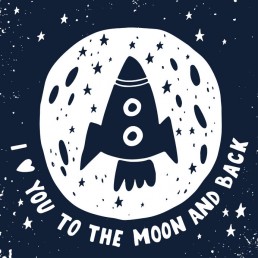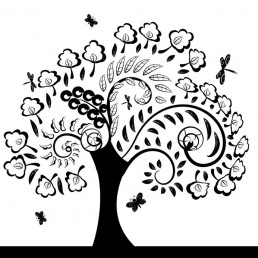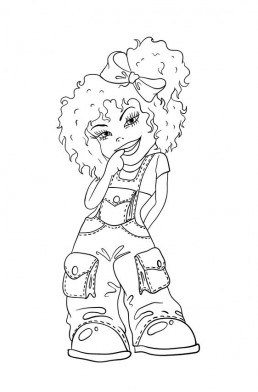Guile and Graffiti in Gravesend
By four o'clock I'd wound up taking photos of a 1950s power station in a town on the Kent coast where I had no sane reason to be. I was down on travel options, I was out of daylight, and the only constructive thing I'd done in half an hour was buy a fifty-year-old coin commemorating the death of Winston Churchill. I was going crazy. I was probably crazy already. I was doing that thing writers call research.
Gynapoda is a London biopunk tale with uplifted parrots, biological sex bots and a modified human called a 'sniffer knit' who narrates first person in MLE . I wrote the first 5,000 words during my MFA and never finished the darned thing.
The story starts in Canning Town, east London, but - by the 5,000 word point - the unnamed heroine has found a dead body in Rainham Marshes and a critical clue...

Will she reach the airport in time? Will I be able to write the remaining 1,500 words in the same style as the first few thousand? The MLE dialect wasn't my idea.
My fictional airport - King William V on the Isle of Grain in Kent - is based on real proposals. Never been to that part of London. No clue what it looked like. So I took the High Speed train from east London and went as far as I could... which turned out to be Gravesend. Apt name. Nice town. Great graffiti.

[Review] Damage, by David D. Levine
Greg from Rocket Stack Rank wrote in the comments on Lela E. Buis' blog:
Try “Damage” for a really bad story that actually got recommended by someone.
How could I resist an invitation like that? And, yep, Damage is pretty bad. Although not the worst I've read this year.
Plot-wise, Scraps - a cobbled-together intelligent spaceship with feelings - is tasked to go on a top secret mission with her pilot, Commander Ziegler. Turns out that he's an arrogant, blood-crazed bastard commanded by a genocidal maniac, and her mission is to penetrate Earth's defenses and nuke Delhi until it glows.
Writing this review, I assumed Scraps was a girl spaceship (they were cobbled together from two 'female' spaceships). Her behaviour is certainly a bad gender stereotype. She's mainly passive. The pilot does the flying. Her main role seems to be providing tactical data and doing basic tasks, which my iPhone 6 can manage just fine without consciousness/sentience. The rest of the time, her "maths co-processor" is devoted to loving her pilot (the reasons for this programming are explained), bolstering his oversized ego and hand-wringing about the horrors of war.
The pseudo-sexual elements were especially cringeworthy:
I miss the thrill of my beloved’s touch on my yoke.
I had no doubt he was the same man who had warmed my cockpit every day since the very hour I awoke
The whole thing reads like Fifty Shades of G-Force** in which Anastasia Steele is handcuffed to Christian Grey while he goes on a killing spree in central Seattle. Or maybe Fifty Shades of Grey crossed with Pacific Rim, in which a gigantic Anastasia Steele trashes Seattle while Christian Grey rides on her back, giving orders. All Scraps needed was an 'inner goddess' in her bomb bay.
[**Fifty Shades is the only erotica I've read. Hence it gets used as a reference point].
I couldn't suspend disbelief at the weirdness of this setup. If Scraps is an AI, why isn't *she* flying the spaceship? She manages to deploy grapnels on her own. In fact, why use a human pilot for the battles, at all? He'd be flesh blancmange after the first manoeuvre. And why doesn't anyone - except Specialist Toman (a traitor to the Free Belt) - seem to notice that Scraps has PTSD?
If Scraps had true agency, blowing the s**t out the good guys instead of putting her metaphorical fingers over her eyes like a good little spaceship, I think it would have improved the story. She wouldn't be an immaculate victim-protagonist, but - instead - a troubled and complex war criminal. That raises more interesting questions, I think.
Conclusion: 2.5 stars + 0.5 stars for the space battles. The writing is alright. The plot has a beginning, middle and an end. The story elements don't quite add up.
[Review] The Hunger Tower by Pan Haitian
"My #1 candidate for the worst short SFF published in any professional venue in 2015"
That's how Greg at Rocket Stack Rank described Pan Haitian's short story The Hunger Tower. I can't say I disagree with him. This is a literary car crash. A monster truck pileup packed into Trabantastic 8,374 words.
Let's start with the plot. An aircrash (seriously?!) on a distant planet strands a priest, a chemistry professor and is-this-the-beginning-of-a-joke. They reach a valley with a tower, where they stave off starvation by eating one other. Eventually someone finds a way out, but is eaten before he can tell anyone else.
So far, so silly. Style-wise, the story is 'told' rather than shown. Almost no one has a name. They have titles like 'boiler tender' (What is a boiler tender? What do they do on planet far-far away?). From the sentence-level upwards, the howlers come thick and fast. Equal space is devoted to narrating important events - like people kicking off their shoes - and trivial events - like the chemistry professor being burned alive.
And then there are the sentences, many of which could ace a bad literature award on their ownsome. Here are my favourites:
#1 The Angel Delight Prize for Most Inappropriate Metaphor
Blood, gore, skull fragments and general intestinal splatter usually calls for horrifying metaphors, but the truly creative writer knows that pink desserts can serve the same purpose.
The survivors began to [...] search the vessel, even exploring the severely damaged fore cabin from which not a single man had escaped alive. Coming across that room, which looked like nothing less than a strawberry slurry spattered blender,
Or the inside of a candy-floss machine... Or an ice cream maker splashed with vanilla brain matter and raspberry chunks.
#2 The Crack-Fic Trophy for Unintended Erotica
Some writers devote whole blogposts to describing characters. Other writers, however, don't bother with all that... or correcting translation errors/missing words.
we must band together in this time calamity,*” the captain said. It comforted them all a little to look up at his ruggedly unyielding gray eyes, his muscular neck, his sturdy and well-defined chest.
I expected Fifty Shades of Cannibalism after the 'ruggedly unyielding gray eyes'. Happily, that didn't happen, but the author did attempt other descriptions, including this classic:
“You’re right, our laser guns are useless,” the chemistry professor said wearily. Due to his slender build, his large, protruding ears were quite eye-catching.
Not sure why the description of ears came up there... Maybe the writer was thinking of vapourising them with the useless laser gun?
[* Bonus prize for spotting the mangled grammar. I think it should be, "at this time of calamity."]
#3 The Heavyweight Award for Fat Shaming
it was apparent that it would be impossible to sustain sixty people for three months on these meager rations alone. This was especially true since many of the survivors were so fat that it was all but guaranteed that they were gluttonous gourmands.
Or they could have had a thyroid problem... Hey, ho.
#4 The Salvador-Dali Memorial Prize for Scenery Description
In the dying light they began to run, setting off a dust storm which stuck to their calves...
... Until they were unable to move for the weight of dust around their ankles. The captain, sweat gleaming upon his bare, muscular shoulders, his hard chest heaving winningly, staggered to a halt, and said, "Why are the rest of our bodies untouched by this accursed dust storm? And how is the sand affixing to us, and with such infernal force, when we are trapped in a desert where there is neither Superglue nor much water?"
The unnamed survivors suddenly realised this was a sentient storm. Paralysed with terror, they began to run. As they fled, the dust swirled into countless thin vortexes, and then lashed out, probing the backs of their elbows and flaying their skin with razor-sharp sand.
#5 The Colin Firth Cup for Worst American Accent
“There’s a helluva lotta trees here,” the boiler tender said. “Maybe we can eat them?”
There isn't much dialogue in this story. This quote may explain why.
Conclusion: This story may cause boredom, bouts of unexplained laughter, and thinking your own writing isn't that bad. Side effects may include snorting coffee through your nose and keyboard destruction.
1-star. #epic fail.
[NB: In 2014, Clarkesworld ran a Kickstarter to publish Chinese SF].
Fronting the 10%
Self-published eBook author? Want to convert samples into sales? Consider cutting the "front matter": the testimonials, genealogy, pronunciation guide, foreword, epigraph and cast of characters:
When you get a reader interested enough that they downloaded a sample, or are clicking “look inside” on a web page, you really don’t want them to scroll past all of that stuff only to find three paragraphs of story! You want a couple pages to hook them in, draw them deep, and make them immediately click “buy the book” so they can keep reading.
The downloadable sample typically contains 10% of your entire eBook:
Some very savvy authors actually set up the amount of front matter and their story so the 10% cutoff falls directly after a cliffhanger. This is sneaky and wonderful, because you can immediately deliver the payoff with the rest of the book.
Your title, copyright page, dedication & acknowledgements (and possibly map and table of contents) should go at the front, according to the Mad Genius Club, Everything else goes to the back.
Of post-apocalyptic SF romance with pirates, and other sub-sub genres...
Great tip for writers who plan to self-publish their books on Amazon Kindle (and similar). 'Writing to market' used to mean writing 'teenage vampire stockbroker' erotica for publishers looking to meet the latest craze. For indie authors, 'writing to market' means:
I’m going to look at the sub-sub genres, check the potential sales pool against number of items in market, and find an underserved market. (More sales on average than stuff available on average.) If it’s something I can do, I’ll try a story / trilogy in it, and see how it sells. Maybe it won’t work. Maybe it’ll break out and go big. Maybe it’ll barely sell; we’ll see.
I spent ten minutes last night Googling around the Amazon UK Kindle store, looking for sub-sub genres. I expected cool ones like:
Kindle Store > Books > Science Fiction & Fantasy > Fantasy > Alternative History > Europe > Cthonic horror > Royalty
Kindle Store > Books > Science Fiction & Fantasy > Science Fiction > Hard Science Fiction > Big Dumb Objects
Kindle Store > Books > Science Fiction & Fantasy > Fantasy > Urban > Demonic & Undead > Chainsaws (warning: a bit gory)
Books > Fiction > Science Fiction > Military > Wheelbarrows
Sadly, no such luck. The most ambitious Amazon UK gets is Science Fiction Romance in a Post-Apocalyptic setting with Pirates: a category that - incredibly - contains 8 books.
[Talking point] Is short science fiction in crisis? A market review
Earlier this year I read short stories nominated for this year’s and the 2014 Hugo Awards, and some that missed out due to the Puppy kerfuffle. And I wondered: Were they the best that science fiction had to offer? And, if so, is short fiction – often seen as the core of the genre – in crisis?
That’s not an idle question. In a 2012 review of Richard Horton’s The Year’s Best Science Fiction and Fantasy in the Los Angeles Review of Books, British science fiction critic Paul Kincaid wrote:
“The overwhelming sense one gets, working through so many stories that are presented as the very best that science fiction and fantasy have to offer, is exhaustion. In the main, there is no sense that the writers have any real conviction about what they are doing. Rather, the genre has become a set of tropes to be repeated and repeated until all meaning has been drained from them.”
A related claim was made by author Nina Allan in her 2014 essay on genre short fiction in The State of British SF and Fantasy: A Symposium. She described a key attribute of the British short science fiction as “hesitancy” with writers “reluctant to express anger at the current state of our political culture or to interrogate contemporary realities”:
"There is a fear of gut reaction, of urgency. Much of what we are offered instead is a dilute solution of generic archetypes and undirected ruminations written in a sub-Carver "show not tell" aesthetic—stories that reflect reality as a backdrop rather than integrating it as a subject matter and without any readily identifiable sense of personal mission."
Short genre fiction is undoubtedly thriving – in publication numbers, at least. When Andrew Hook and Gary Couzens began publishing short stories in the 1990s, they were in something of a golden age for small-press magazines. Cheap desktop publishing and the rise of the internet meant, according to Gary, “There were a lot of them around, some coming and going quite quickly, others lasting a while and with a good reputation.”
While many of these magazines ceased to exist, Andrew – who has published more than 120 short stories since 1994 - says there’s still a vibrant market. He says, “Currently it feels to me that the print short story market is healthy, supported by webzines.”
Much of today’s boom is down to the internet. According to Lynda E. Rucker, who began submitting short fiction in 1994, “I think the internet has been a boon for short fiction, has maybe saved genre short fiction. I still love print mags, but it's wonderful that sites like Tor, Clarkesworld, Strange Horizons, Apex, Lightspeed, Nightmare and quite a few others can pay rates of 5-20 US cents per word and showcase some really fine fiction.”
As well as reducing print costs for novellas and online magazines, the internet has opened up a wider range of publications to writers, with most taking electronic submissions. As Gary says, “it's far easier to submit to markets in other countries, and of course markets in other countries publishing in other languages.” That said, he recommends that new writers stick to short stories, rather than novellas, as it’s easier to score that crucial first sale.
Anthologies also seem to be thriving with Lynda saying the market is “kind-of flooded.” But they are increasingly from small presses, rather than major publishers who – according to Gary, “find them a hard sell and I understand tend to put pressure on editors to include big names to put on the cover (who are often novelists and may not be the best short-fiction writers).”
Some authors are turning to Patreon – the creative crowdfunding platform - to connect with fans and provide a stable source of income. According to Hugo-winning author Kameron Hurley’s Patreon page, “What this Patreon lets me do is justify the time I need to spend to write shorter fiction without worrying about the market for it – and connect with you all while I’m doing it.”
Advantages of Patreon include simplifying the tax issues around micro-payments. Indie author M.C.A. Hogarth, in an SFWA Marketing Podcast, said she adopted the platform as an alternative to a tip jar (about 29 minutes in):
https://youtu.be/fzXN5LuhqgU
Readers would tip her $1, $3, $2.50 – which she’d painstakingly record in a spreadsheet for the US Internal Revenue Service. With Patreon, she gets a lump sum at the end of the month and her readers can make a regular contribution with their credit card.
Yet the disadvantages of Patreon remain myriad. Authors need a solid fanbase and to regularly deliver high-quality content. Indie genre author Luna Lovewell, who makes more than $700 a month via Patreon says, “I have found that it is difficult to get fans interested in Patreon. I think that part of it is that it is a bigger commitment than a one-time donation, and readers aren't interested in that unless you're doing an ongoing story.”
According to Alex Willging, who has just started using the platform to fund short science and fantasy fiction, “I don’t know for sure if Patreon will supplant spec fic magazines altogether, but I can see it becoming a more attractive option for amateur writers.”
Trouble is, despite the mass of publications and funding models, short fiction isn’t a ‘commercial’ genre. The fastest writer I interviewed consistently wrote 1,000 words in 7-10 hours (some writers may be faster). At a pay of 7-12 cents per word for The Magazine for Fantasy & Science Fiction, a professional market, selling every story and writing every day including Christmas, that’s $43,800 before tax. The average American made $44,600 in 2014. Even superstar short fiction writers like Harlan Ellison also rely on script writing and journalism for income.
According to Deborah Walker, who sold 169 short stories and poems in 2014, “I don’t know any writers making a living from short stories only, and I know a few who make a living indie publishing novels. The pay, even at professional rate, for shorts is too low for most writers to make a living wage. Last year, I spoke to one of my favourite short story writers, who’s very prolific and publishes in the top journals and he agreed. Some superstar short story writers might be making a living with short stories only… but I haven’t heard of any.”
Rates for short fiction have improved since 1975 when it seems they might have been 2 cents a word. The SFWA rates for a ‘pro’ publication rose to 6 cents per word in 2014 from 5 cents per word – the rate set in 2004. Yet this is still insufficient to pay a full-time American author a living wage and has largely not kept pace with inflation. Two cents a word in 1975 is equivalent to nine cents today. Not all pro markets pay those rates. Analog does. Strange Horizons doesn’t.
The main reasons to write short stories, according to pulp fantasy author Larry Correia, are to trial new settings with readers, practice writing technique and for marketing novels. There’s a real question over the purpose and quality of short fiction in this world. Or, as Nina Allan wrote about the copious output of small press anthologies,
Given that most writers would rather be paid than not, it is safe to assume that those with the skills and tenacity to make a significant contribution will gravitate away from the small presses and towards paid markets as soon as their work begins to attract wider attention.
There’s an open question whether low pay for short science fiction partially explains the ‘exhaustion’ or ‘hesitancy’ of the genre. This can’t be a full explanation, however. Jonathan McCalmont’s 2012 essay Cowardice, Laziness and Irony: How Science Fiction Lost the Future, mainly talks about books.
And it’s unclear there ‘is’ a crisis in the whole genre, rather than in the formal processes for promoting and awarding work. Greg Hullender and Rocket Stack Rank found – for major publications in 2015 - that 12% of recommended stories were hard SF. And the stories they rate as good cover a wide range of topics.
The issue remains, for me, that some of the stories Rocket Stack Rank recommend – such as Edited in Interzone #259 – write on small-scale, personalised canvases. They’re literary vignettes that mainly address individual experience, rather than wider ethical, social or political issues, such as – for example – the relationship between citizen and state.
Any combination of factors could be responsible. From growing cultural sensitivity, as perhaps demonstrated by the controversy over Jonathan Ross at Loncon 3 or Elizabeth Moon’s uninvitation from WisCon leading to – possibly – writers steering away from controversial topics. To science fiction entering the literary mainstream, while – speculating wildly – short genre hasn’t the prestige to attract or keep experimental writers.
And then there’s pessimism about the future. As Nina Allan wrote about British science fiction:
In post-Blair, Coalition Britain, the sense of optimism and widening opportunity that characterised the 1960s—in the workplace, in social relations, in gender equality—has largely been replaced with an atmosphere of constraint, of increasing social conservatism and dangerous levels of political apathy.
Today’s western science fiction authors must contend with narrowing horizons and darkening political skies. The rise of European nationalism and regionalism, fears of a Third World War, climate change, terrorism, rising income inequality in many developed countries, and the crisis in the US presidential system (with the risk of a government shutdown and coup).
Perhaps these contemporary realities are why many science fiction authors focus on the personal, the particular and – often - the nostalgic, and are hesitant about tackling big ideas. Especially at 6 cents a word.
Again, thanks to everyone who took the time to chat to me. I really appreciate it.
Some days I wonder...
...Whether I was a better writer when I was fifteen.
So begins Syer Roth: Fire Empress, the science-fantasy novel I wrote as a teenager. I found it in the spare room this morning - all 960 pages of it. The internet didn't exist in those days so it's wholly in hard copy. I've considered typing it up and editing it, but it wouldn't be suitable for publication. It's a Mary-Sue fest and (probably) too gory for Young Adults.
[Interview] Allen Ashley on the state of the SF&F short story market
Is the science fiction & fantasy short story a dying art form? Or is there a growing market driven by push-button publishing and the web? Last year the Guardian newspaper argued that SF&F short fiction was entering a golden age and Greg Hullender recently discovered that the big print magazines are getting serious competition for Hugo and Nebula Awards from online.
Reading short fiction during the 2015 Hugo Awards kerfuffle – and getting a story accepted for an anthology – inspired me to find out more.

Allen Ashley has published more than 100 short stories in dozens of books and magazines in the UK, USA, Canada and Spain. He’s also written novels, poetry, lyrics, non-fiction articles and critical commentary. You can find out more on his website. www.allenashley.com
Allen was kind enough to give me an interview. Thank you!
Vivienne Raper: Would you say the short story market is in worse shape now than in the past? Or in better shape? And over what time period? And does this depend - in your view - on length of story (e.g. short story of 4,000 words vs novella?)
Allen Ashley: In many ways, I would say it is worse than at other times. We’re never going to be able to go back to the long-ago days when everyone read magazines and often the preferred choice was pulp magazines of science fiction, horror, westerns or war stories. That rose-tinted time before television, computers, mobile devices…
Those of us who have been on the scene for a while often hark back to a perceived golden age for small press short story outlets from the early 1990s and will rattle off titles of places we were published or submitted to. Time has helped us to forget that the production quality wasn’t always great and some of the stories weren’t that fabulous either, but there was a feeling for a while that one could always find a suitable home for one’s story.
There seem to be fewer magazine outlets these days, especially in the UK. For example, one can predict that Interzone and/or Black Static will always be on the shortlist for Best Magazine / Periodical because there is so little established competition. Publishers tell me that anthologies are a hard sell, which is a little surprising since they offer more of a variety than the average novel or short story collection. Anthology publishing by independent presses goes up and down in a-not-entirely predictable cycle. There have been a few recently and I’ve edited several over the past few years so, fingers crossed…
What has changed the market, of course, is the decision of many publications to publish entirely online. There are a lot of good quality regular magazines published in this fashion and without the associated printing costs their editors have a greater freedom in terms of accompanying artwork, story length, total page length, etc. Places like Sein und Werden, Synaesthesia, and Holdfast spring to mind.
In terms of length, there has also been an upsurge in the UK in markets for flash fiction (My definition is: Fully self-contained short stories below 1000 words, probably below 500 words). There are lots of venues and competitions for this format.
As regards novellas, a few independent publishers have lately expressed an interest in reviving this form, which has a proud history within our genre. Pendragon Press and Spectral Press are recent entrants into this market.
Vivienne Raper: Are there fewer magazines paying commercial rates (6 cents per word) than in the past? Are there more anthologies?
Allen Ashley: To the first question: Yes, that seems to be case. There are several reliable markets paying around 8 cents per word - Analog, Asimov’s, Lightspeed, the Magazine of Fantasy and Science Fiction and so forth.
I’ve probably not submitted as much to North American markets as I perhaps should have and consequently haven’t been published “over there” on that many occasions. It’s a personal matter, but I feel that my writing has a British or English sensibility and I write about versions of London rather than LA or New York, so I have tended to concentrate largely on British venues.
Rates are not quite so high in the UK. The last time I was in Postscripts, for example, from World Fantasy Award-winning PS Publishing, they were paying one penny per word and that is often up to a maximum of £100 per story. Many markets - good-quality markets - are non-paying or royalties only or nominal payment (e.g. £10 per story). This is driven by the fact that magazines and anthologies are struggling to make sales. With online publications, the product is often legally free or easily available at the point of delivery so sales money isn’t coming in to enable editors to pay big rates.
There remain some markets paying good rates. Of course, firstly one has to place one’s story there, which is far from being a given. After that, there is often a bit of a moratorium along the lines of - if you’ve featured in issue 30, please don’t submit for issues 31 and 32. Fair enough in terms of variety for the reader, but it means that - as a writer - you have to spread the net fairly wide.
Vivienne Raper: How do you think the SFF community's attitudes to short fiction have changed since you started publishing shorts?
Allen Ashley: In some ways the prejudice still exists. Why do I use the word ‘prejudice’? Well, people forget that without the short story as developed in Amazing, Astounding, the original Weird Tales and other such venues, our genre wouldn’t have ever flourished. Many of the great ideas in science fiction have originated in the short form or in works that are well below the required 80,000 to 100,000-word expectations imposed by today’s big name publishers - The Time Machine; Fahrenheit 451; Metamorphosis; Nightfall; most of Philip K. Dick’s and A. E. van Vogt’s major works started as short story ideas; fill in your own favourite short story / novelette / novella here.
But short stories both within the genre and beyond are still viewed as ‘minor’ and often as something people work on whilst they are warming up for their apparently more significant work - usually a desperately over-padded novel.
I moderated a panel at FantasyCon this year with the title The Short Story: Short-Lived or Part of the Long Game? where one of the questions we had to discuss was the slightly pejorative, ‘The role of short stories in a writer’s development and career.’ The implication was that you’ll grow out of them or that writers knock out a couple of short stories just to keep their hand in when they are between novels. For me short stories are, in the main, my whole career. I used analogies from music - no-one asked Lennon and McCartney to use Let It Be or Strawberry Fields Forever as a warm-up to writing a two-hour operatic symphony.
Sarah Doyle has given me a better image to respond to those who erroneously think the only purpose of short stories is preparation for a novel: Usain Bolt, the greatest sprinter ever. Nobody claims: Oh, he’s just warming up for the entirely different discipline of running a marathon.
As you can tell, this is an issue on which I have quite strong opinions.
Vivienne Raper: Do you think it would be possible to full-time write short stories for magazines, as it seems some people did during the Golden Age of SF? Or are there too few slots?
Allen Ashley: I’ve partly answered this already. The simple response is: No, it’s not possible anymore. Part of me wishes I’d been born 25 or 30 years earlier so that I might have made a decent living from selling a story every week or so to The Saturday Evening Post back in the golden days. Like Ernest Hemingway and Kurt Vonnegut did.
Short stories are not easy work. The gestation and thinking period can be prolonged. The writing, redrafting, and editing period even in the good times can be at least a week. Focusing on that and nothing else. Then, if you’re lucky, you might get £100 for it. You can’t live on that.
So, one does other things, often writing related. I work as a creative writing tutor with five regular groups and other one-off festival workshops. I’m always warning would-be writers that the big money just isn’t there except at the J. K. Rowling / Dan Brown level. Many well-known writers have to supplement their income with gigs, such as reviewing, academic placements, book tours and the like.
But so what? I write short stories because they are what I love. I read short stories because nothing hits like a brilliantly crafted short hit from Nina Allan or the late Joel Lane.
Whilst I’m in a somewhat ranting mood, I would add that independent publishers are where you will find the important and exciting new work in the short form. This could be anthologies, individual collections, magazines, webzines, podcasts or other formats. The big name publishers aren’t vastly different to Tesco or McDonald’s – it’s all about selling the same product in bulk over and over again: Twilight spin-offs, Game of Thrones rip-offs, whatever. Then they have the gall to say they won’t publish short story collections because these books don’t sell. It’s a self-fulfilling prophecy: if you don’t publish something, you can’t sell it.
The short story will rise again. I just hope I’m still around to reap some of the benefits!
Vivienne Raper: Thanks again, Allen.
One of Allen's favourite Nina Allan stories is Darkroom, which he published in his anthology Subtle Edens (Elastic Press 2008). Click here to read it free online.
I’ve interviewed three other writers and – in addition – two authors who use Patreon to fund their fiction. Watch this space to find out more.
{NB: Allen has had copy approval of the final article}
Thinking about writing a female protagonist? Hmmmm...
Erin Lindsey describes of the no-win situation as you dare to craft your female protagonist. She must be strong, but not so superhuman that she's a Mary Sue. And she must be recognisably female, but not a feminine stereotype. When creating your heroine:
balance is key. Like, say, walking a tightrope. Over a bed of pikes. Writhing with asps.
And she explains the 'dangers' of writing antiheroines:
if she drinks and swears and occasionally acts like an arrogant jackhole, we’re probably going to dislike her.
Case in point, from the first draft of my non-working novel:
I adore Troya, but she is a complete Marmite character. My husband loathes her and says he wouldn't read my novel. One of my friends thinks she's amazing. My Monday writing group ranges between strong dislike and bouts of incredulous laughter.
There's a secondary issue that I'm writing a hard-SF crime novel. And - on average - readers of hard SF don't like Troya. Her fanbase - I've noticed - is mostly among fantasy readers. Troya is prone to disrupting my ideas-based content in Fear and Loathing in Las Vegas-style ways (turning up to places hungover, drunk, half-asleep or late... and then telling the reader about it). She is, as another character describes her:
A disrespectful, arrogant, unrepentantly psychopathic little scumbag
What do I do? Carry on writing her because 50% of readers will love her...with the expectation that the rest will throw the book across the room? Write someone less divisive, but also less memorable and fun to write. Write her into a novel or novella that is more character-driven and less ideas-based hard SF.
Answers on a postcard.
I don't know how Takeshi Kovacs gets away with it...
Hugo nominations 2016: Best Professional Artist?
Bastion is a new science fiction magazine publishing digitally on the first of every month... Their cover artist is Milan Jaram and every cover is absolutely gorgeous.

I love the striking images in intense shades of blue, orange, etc. They're dramatic and eye catching. They remind me, in some ways, of Caravaggio paintings, which also use high contrast to increase the power of the scene and spotlight the figures.











